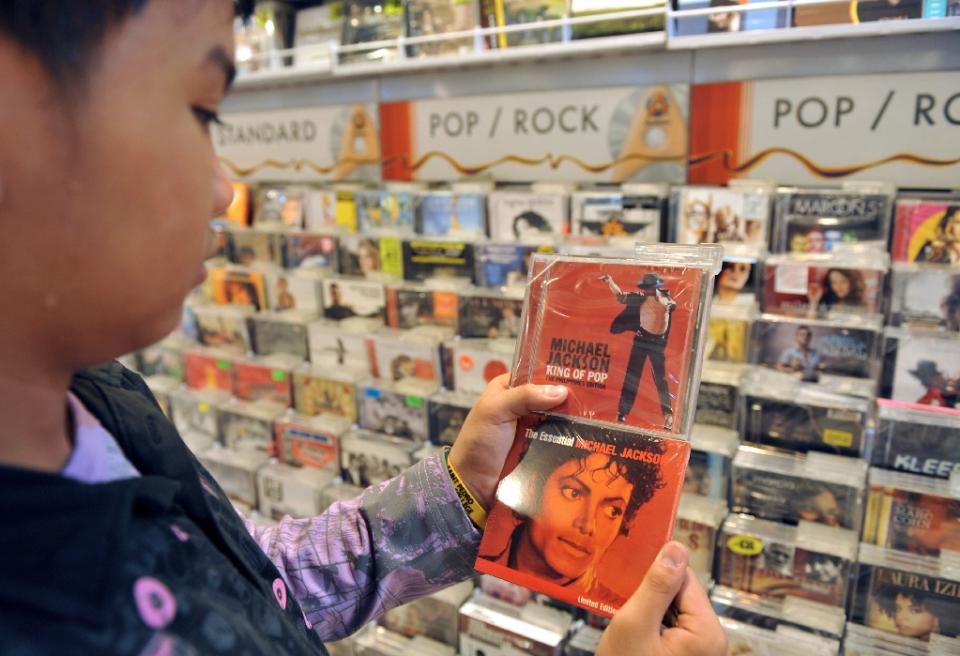
The music industry has announced an agreement to release albums globally on Fridays, ending divergences among regions that have fueled piracy in an age of instant music.
Key groups representing music retailers, record companies and artists said that they would coordinate album releases to go out everywhere each Friday at one minute past midnight local time.
Thursday’s decision, after nine months of consultation, is expected to go into effect by summer in the Northern Hemisphere, said Frances Moore, chief executive officer of the music industry’s global body IFPI.
“What is absolutely clear is that there is nearly unanimous agreement that a global release date is a good thing,” Moore told AFP.
Under longstanding traditions, albums are generally released on Monday in Britain and France, Tuesday in the United States, Wednesday in Japan and Friday in Australia and Germany.
The variations have looked increasingly anachronistic amid the rapid growth of digital downloading and more recently streaming, contributing to a black market for albums already out in one region.
Moore said that a global release date would help bring more excitement to the industry.
“Let’s say Daft Punk, for example, makes an announcement saying that their album’s out today, but it’s in America and it’s not until Friday in Germany. There is a three- or four-day gap.
“As a consumer, you can’t find it, even though the artist says it’s out there. So now they won’t have to go looking on a pirate site — we are focusing them on the legitimate market,” she said.
London-based IFPI, which stands for the International Federation of the Phonographic Industry, said it had consulted with the International Federation of Musicians, which represents global unions, as well as leading retailers and streaming services including Spotify.
– Still opposition –
A number of independent retailers in the United States, the world’s largest music market, had opposed the Friday release date, arguing that weekends were already the busiest time and it made sense to encourage customers to come on an otherwise slow Tuesday.
In recent years, artists including Beyonce and Madonna have also suddenly released albums without warning, sometimes selling them first in digital format, either in response to leaks or sometimes to avoid them.
Moore said that the Friday plan enjoyed broad support but that there would be no legal ramifications for anyone who insists on another day.
“But there is a clear majority in favor of doing this, and I think eventually it will be aligned,” she said.
Chris Vanderloo, co-owner of Other Music, an independent New York store known for its eclectic selection, said that he did not have major objections to a Friday release as long as it was consistent between digital and physical formats.
The disparity between digital and physical releases is a far greater concern for small stores than different days for the same format between borders, he said.
“Just give everybody a level-playing field, not only on where they purchase it, but how they purchase it,” he said.
– New source of growth? –
The music industry has witnessed turmoil since albums started going digital some 15 years ago.
Global music revenue fell 3.9 percent to $15 billion in 2013, according to IFPI, although the drop was led by Japan – where physical albums overwhelmingly dominate the market — and digital sales grew in parts of the West.
Cary Sherman, chief executive of the Recording Industry Association of America, which represents US-based labels and distributors, said that “geographic lines are often irrelevant” in marketing albums when many fans expect instant access.
Paul McGowan, chief executive of Hilco Capital which owns Britain’s largest music retailer HMV, voiced enthusiasm about shifting to Friday releases due to the flow of shoppers.
“Quite simply, new music should hit the high street when people hit the street,” he said in a statement. [Yahoo News]

